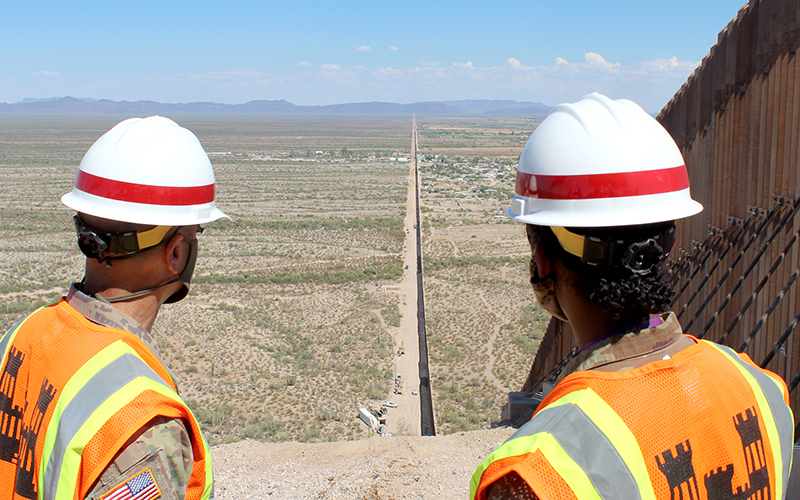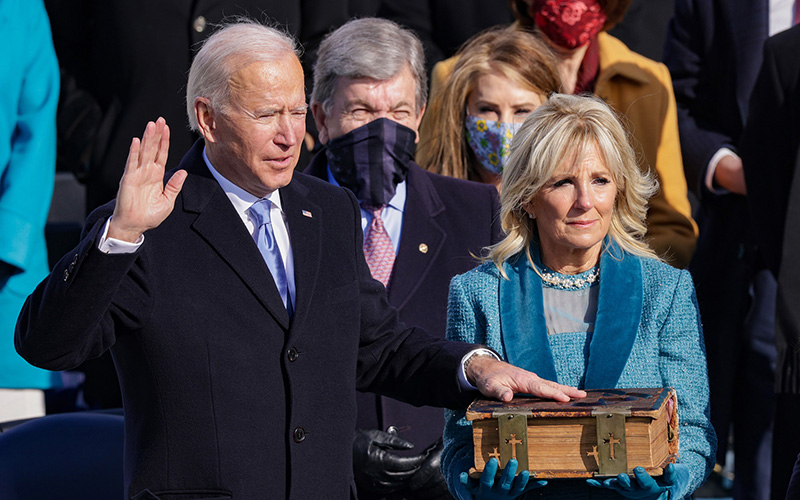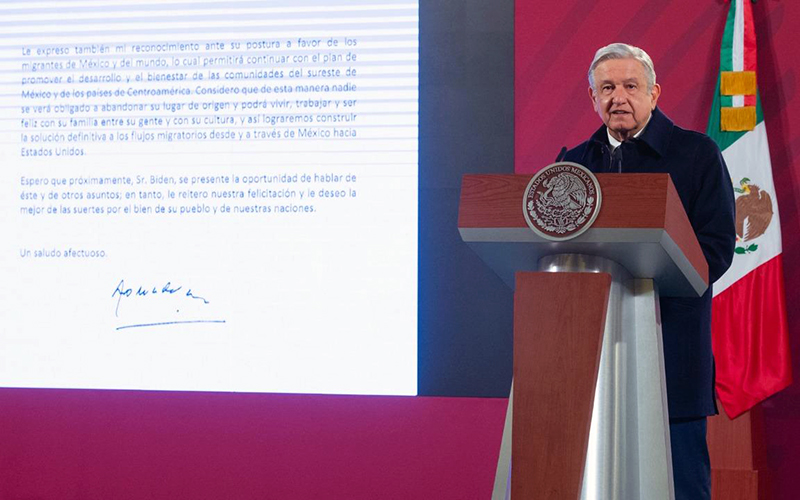WASHINGTON – President Joe Biden made good on a campaign promise within hours of his swearing-in this week, ordering a pause in construction of the border wall and a plan for how to redirect wall funding.
Opponents of the wall called the executive order “a huge win.” But they also said it is not the end of the fight, noting that Biden’s order allows a week for construction to actually come to a halt and directs agencies to evaluate contractual and legal obligations for the wall.
“For the short-term, foreseeable amount of time, we’re just going to be in a status quo,” said Brett Hartl, government affairs director for the Center for Biological Diversity. “They won’t build anymore, they won’t necessarily take any down, and they’ll look at the problem seriously.”
Tricia Cortez, founding member of the #NoBorderWall coalition, called Biden’s move “a significant first step, but we also know that there is more work to be done.”
Biden’s proclamation Wednesday also terminated the state of emergency at the border that had been declared by former President Donald Trump and used as a justification to redirect billions of dollars to the wall and bypass environmental and other regulations in its construction. Critics said that allowed the Trump administration to damage endangered critical habitats and desecrate sacred Native American sites.
“It shall be the policy of my Administration that no more American taxpayer dollars be diverted to construct a border wall,” Biden said in the order, which called the state of emergency “unwarranted.”
The order said that work on the wall would be paused to allow for a review of the “legality of funding and contracting methods” used on the project, the consequences of halting it and a study of “redirecting funding and repurposing contracts” on the wall. But it also allows for “the expenditure of any funds that the Congress expressly appropriated for wall construction.”
Wall funding was a continual battle between Trump and Congress. When lawmakers rejected the president’s request for $5.7 billion for the wall in late 2019, Trump refused to sign the budget and government shut down for a lack of funding, in what became the longest government shutdown in history.
After a 35-day shutdown, Congress agreed to allocate $1.375 billion for a wall and Trump signed the budget. Then he immediately declared a state of emergency that he said allowed him to redirect $3.6 billion to the wall from other agencies, primarily the Pentagon.
That claim was immediately challenged in court, and the Supreme Court is set to hear the case next month. But while it and other challenges have churned through the courts, wall construction has continued, reaching 452 miles of the roughly 2,000-mile border from California through Texas as of early January.
That’s a good thing to wall supporters like Andrew Arthur, resident fellow at the Center for Immigration Studies, who said the border wall can “act as a force multiplier for border patrol agents.”
“Border barriers impede the movement of individuals over that border. If people are coming over the border illegally, it will give border patrol more time to respond,” Arthur said.
Biden directed the secretaries of Defense, Treasury and Homeland Security and heads of other agencies to come up with a plan within 60 days on redirecting wall funds and repurposing contracts with private contractors.
In the meantime, Arthur said: “No shovels of dirt are going to be dug up, no cranes are going to operate, no wall is going to be installed. If you were to head out to the border, you would probably not see any construction going on.”
But Laiken Jordahl, a borderlands campaigner at the Center for Biological Diversity who has been tracking construction crews closely, found a mixed bag on the border this week after the order was signed.
At one site, he tweeted Friday that “border wall construction crews have been sent packing.” But later in the day he tweeted that crews were “plowing full steam ahead” at Coronado National Memorial, “continuing to excavate & bulldoze mountaintops thru critical jaguar habitat.”
Rep. Raúl Grijalva, D-Tucson, said the construction needs to stop.
“While ending the national emergency at the Southern border is important, President Biden must keep his promise and ensure that not another foot of border wall is constructed under his watch,” Grijalva said in a statement Wednesday.
More than stopping the advance of the wall, Hartl and Cortez said they hope to see repairs to some of the damage it has caused.
“We hope that president Biden will direct the border patrol to do a review and assess the damage that has occurred from the construction and then take appropriate action to mitigate or undo the damage that has happened,” Hartl said.
That was echoed by Cortez.
“We have to make sure contracts are canceled, that the confiscation of land stops, that all of the federal laws that were suspended be restored, that sections of the wall begin to come down and that places that went through harm be remediated,” she said.



